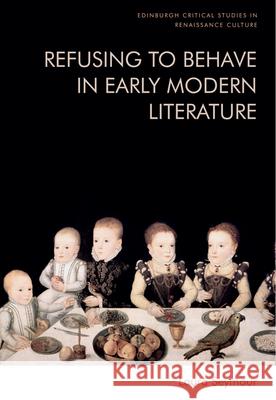Refusing to Behave in Early Modern Literature » książka
topmenu
Refusing to Behave in Early Modern Literature
ISBN-13: 9781474491808 / Angielski / Twarda / 2022
Refusing to Behave in Early Modern Literature
ISBN-13: 9781474491808 / Angielski / Twarda / 2022
cena 400,21
(netto: 381,15 VAT: 5%)
Najniższa cena z 30 dni: 371,82
(netto: 381,15 VAT: 5%)
Najniższa cena z 30 dni: 371,82
Termin realizacji zamówienia:
ok. 16-18 dni roboczych.
ok. 16-18 dni roboczych.
Darmowa dostawa!
Kategorie:
Kategorie BISAC:
Wydawca:
EDINBURGH UNIVERSITY PRESS
Język:
Angielski
ISBN-13:
9781474491808
Rok wydania:
2022
Oprawa:
Twarda











